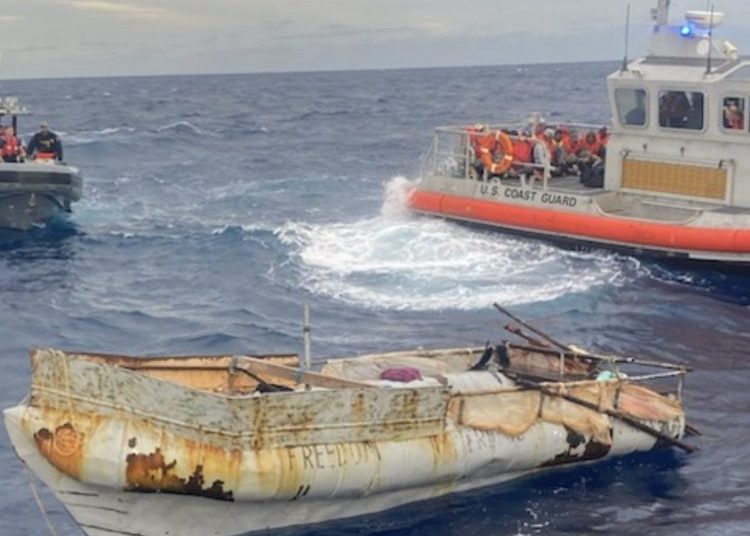|
Getting your Trinity Audio player ready...
|
This Tuesday, 56 Cubans were returned to the island by the United States authorities, which represents the first return of irregular migrants in 2024.
The majority of this group (48 men and eight women) reside in Matanzas and is made up of participants in three illegal exits between December 26 and 29.
#Breaking @USCG Cutter William Flores’ crew repatriated 56 migrants to #Cuba, Tuesday, following three interdictions of unlawful migration attempts in the Florida Straits. #DontTakeToTheSea #OVS #D7@USEmbCuba @CBPAMORegDirSE
More ℹ️ https://t.co/HQcwmnbPBx pic.twitter.com/X7pRKUE5lh— USCGSoutheast (@USCGSoutheast) January 3, 2024
The migrants were intercepted at sea by the U.S. Coast Guard, which returned them to the island, according to the Ministry of the Interior (MININT) in X (formerly Twitter).
“Five of the returnees were transferred to the investigation agency for being alleged perpetrators of serious criminal acts that were being investigated before they became involved in the illegal departure or based on that action,” the Cubadebate news item pointed out.
Intercepted at sea
In the last week of 2023, the U.S. government deported 40 irregular migrants, 31 of them by air and another 9 through the Coast Guard, complying with the agreements in force between both nations in order to stop irregular migration.
The Coast Guard has already repatriated 235 migrants in fiscal year 2024, which began October 1, 2023.
During the previous fiscal year, which began on October 1, 2022, and ended on September 30, 2023, nearly 7,000 Cubans were intercepted by the U.S. Coast Guard, according to an EFE news agency count.
Added to this, the agency specifies, was the resumption of deportation flights agreed upon by both countries a year ago, mainly for people considered “inadmissible.”
425,000 Cubans at the border in the last two years
Between 2022 and 2023, a record number of 425,000 Cuban migrants arrived at the U.S. southern border, of which 200,287 arrived during the last fiscal year, according to a report from the office of Customs and Border Patrol of that country.
Last year Cuba received a total of 5,253 nationals, mostly from the United States, but also from countries such as Mexico, Bahamas, Belize, the Cayman Islands, and the Dominican Republic.
In recent years, the island has been experiencing an unprecedented migratory wave that has broken records due to the serious and prolonged economic crisis manifested in a great shortage of basic products, galloping inflation, frequent power outages and a partial dollarization of the economy.
Estimates for 2022 indicate that 4% of the Cuban population left the country and it is not ruled out that the figures for the recently concluded year could be similar according to those accumulated to date, the EFE news agency stated.










